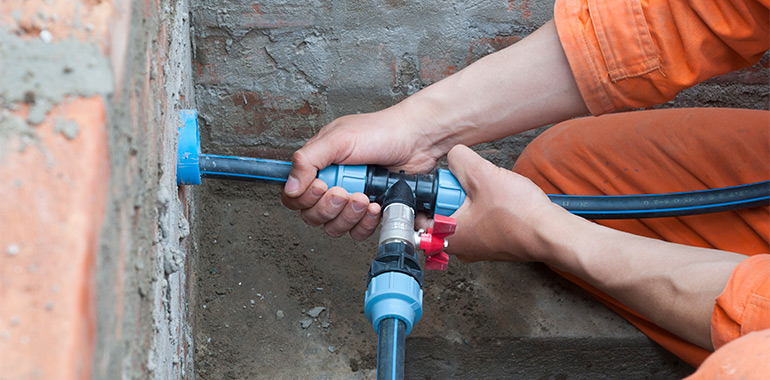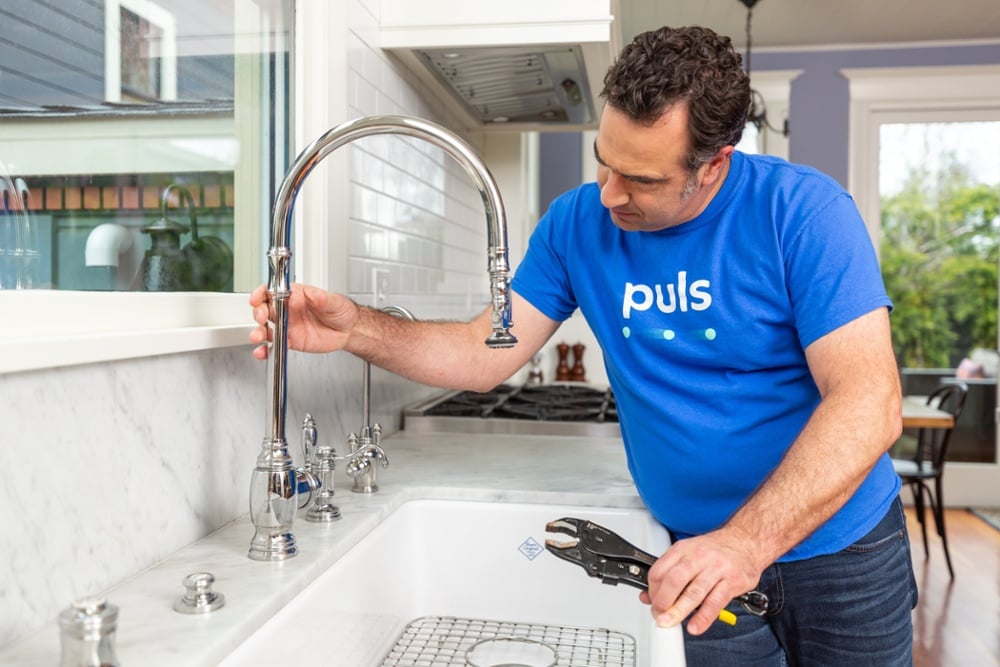Everybody may have their unique piece of advice about Diagnose Unwanted Plumbing Noises.

To identify noisy plumbing, it is essential to identify very first whether the undesirable audios take place on the system's inlet side-in various other words, when water is transformed on-or on the drainpipe side. Sounds on the inlet side have varied causes: excessive water pressure, worn valve and faucet parts, incorrectly linked pumps or other home appliances, improperly put pipe fasteners, as well as plumbing runs including a lot of tight bends or other limitations. Noises on the drain side usually stem from inadequate place or, just like some inlet side sound, a design including tight bends.
Hissing
Hissing noise that occurs when a faucet is opened slightly usually signals too much water stress. Consult your neighborhood public utility if you think this issue; it will certainly have the ability to tell you the water pressure in your area and can mount a pressurereducing shutoff on the inbound supply of water pipe if necessary.
Various Other Inlet Side Noises
Squeaking, squealing, scraping, snapping, and touching normally are triggered by the growth or contraction of pipelines, normally copper ones providing hot water. The sounds take place as the pipelines slide against loose bolts or strike close-by house framing. You can usually identify the place of the problem if the pipelines are subjected; just adhere to the noise when the pipes are making sounds. More than likely you will discover a loosened pipe hanger or a location where pipes lie so near floor joists or other mounting pieces that they clatter versus them. Connecting foam pipe insulation around the pipelines at the point of get in touch with should treat the issue. Be sure bands as well as wall mounts are protected and also offer ample support. Where feasible, pipe bolts should be connected to massive structural components such as foundation walls instead of to framing; doing so reduces the transmission of resonances from plumbing to surface areas that can intensify and transfer them. If connecting fasteners to framework is inevitable, cover pipes with insulation or various other resilient material where they speak to fasteners, as well as sandwich completions of new fasteners in between rubber washers when installing them.
Remedying plumbing runs that suffer from flow-restricting tight or many bends is a last resort that ought to be taken on only after speaking with a knowledgeable plumbing contractor. Sadly, this circumstance is rather common in older houses that may not have actually been constructed with indoor plumbing or that have seen a number of remodels, specifically by beginners.
Chattering or Screeching
Intense chattering or shrieking that takes place when a shutoff or faucet is switched on, which normally goes away when the fitting is opened fully, signals loose or faulty interior components. The remedy is to change the shutoff or faucet with a new one.
Pumps and home appliances such as washing makers and also dish washers can move electric motor sound to pipes if they are improperly connected. Link such items to plumbing with plastic or rubber hoses-never rigid pipe-to isolate them.
Drainpipe Noise
On the drain side of plumbing, the chief goals are to get rid of surfaces that can be struck by falling or rushing water as well as to protect pipes to consist of inevitable noises.
In new construction, bathtubs, shower stalls, toilets, and wallmounted sinks and also containers need to be set on or versus resistant underlayments to minimize the transmission of noise with them. Water-saving bathrooms as well as taps are much less loud than traditional designs; install them rather than older types even if codes in your area still allow making use of older fixtures.
Drainpipes that do not run vertically to the cellar or that branch right into straight pipe runs supported at floor joists or other mounting existing especially bothersome noise problems. Such pipes are huge sufficient to radiate considerable resonance; they additionally bring significant quantities of water, that makes the circumstance worse. In new building and construction, define cast-iron soil pipes (the huge pipelines that drain toilets) if you can afford them. Their enormity consists of much of the noise made by water travelling through them. Likewise, stay clear of transmitting drainpipes in walls shown to rooms as well as areas where individuals gather. Wall surfaces containing drains should be soundproofed as was defined earlier, making use of double panels of sound-insulating fiber board as well as wallboard. Pipelines themselves can be covered with special fiberglass insulation created the function; such pipes have a resistant vinyl skin (sometimes having lead). Results are not always adequate.
Thudding
Thudding noise, often accompanied by trembling pipes, when a tap or appliance shutoff is shut off is a problem called water hammer. The noise and resonance are caused by the resounding wave of pressure in the water, which instantly has no location to go. Often opening a shutoff that discharges water swiftly into an area of piping containing a limitation, elbow, or tee installation can produce the very same condition.
Water hammer can normally be cured by setting up fittings called air chambers or shock absorbers in the plumbing to which the issue shutoffs or faucets are attached. These devices permit the shock wave created by the halted circulation of water to dissipate airborne they include, which (unlike water) is compressible.
Older plumbing systems might have short upright areas of capped pipe behind wall surfaces on faucet runs for the very same purpose; these can at some point fill with water, minimizing or damaging their effectiveness. The remedy is to drain pipes the water supply completely by shutting down the main water system shutoff as well as opening up all faucets. After that open the main supply shutoff and shut the faucets one by one, beginning with the faucet nearest the shutoff and finishing with the one farthest away.
Pipe Down! What to Do About Noisy Water Pipes
Banging
Does it sound like someone's hitting your pipes with a hammer every time you run water? The issue could be a phenomenon called water hammer, which happens when a water valve closes suddenly. You'll often hear it when your washing machine stops filling, for example. The momentum and pressure from the water flowing toward the valve create the shockwave that causes the banging noise when the valve closes suddenly. It might not seem like a big deal, but water hammer can cause damage to your pipes, including leaks and joint damage.
One way to ease water hammer is by installing water hammer arrestors. Your plumber can install them near major valves to help cushion the shock of the water when it suddenly stops or changes direction. You might also need to reduce the water pressure coming into your home with the pressure-reducing valve.
Gurgling
Gurgling sounds typically come from drainpipes. This sound happens when the water can't drain properly, usually when there's a clog in the water pipes. Drain clogs often happen due to hair, grease, soap scum or objects that fall down the drain. They can happen suddenly or build up slowly over time.
You can sometimes clear a clogged drainpipe with a plunger to help force the clog through the pipe. A plumbing snake or an auger can also help break up tough clogs. A common plumbing myth is that chemical drain cleaners are safe and effective, but they often don't work and contain harsh chemicals that can hurt you and your plumbing. If you can't remove the clog with a plunger or snake, it's best to call a plumber to help.
Rattling
Water travels through your pipes with lots of pressure, so the pipes are bound to move a little. Pipes should be secured well to keep them from moving too much when water runs through them. If they're not properly fastened or the fasteners come loose, you might hear them rattling when you run water.
Resecuring the pipes can cut down on the rattling noise and prevent damage to the joints of the water pipes. However, many pipes run behind walls where you can't easily access them. A plumber can help determine if loose fasteners are the cause of the rattling and resecure them if necessary.
Humming
If your pipes sound like they're humming, it's likely a water pressure issue. When the water pressure is high, it can cause the water pipes to vibrate and create a humming sound. High water pressure is more common if you have a well for your water, but it can happen with municipal water as well. High water pressure can damage your plumbing and cause leaks.
If you have a well, check the pressure to ensure it's below 55 pounds per square inch. A plumber can test the pressure for you and help adjust the issue if you're not sure how to do it yourself. If you're connected to the municipal water source, your home likely has a pressure-reducing valve near where the water enters your home. You can adjust the screw in the valve to decrease the pressure, but be careful not to lower it too much.
Squeaking
Squeaking or squealing is another common sound you'll hear in your water pipes. This often happens if small components within the plumbing, such as washers or aerators, become loose, dirty or damaged. When this is the cause, the squeaking sound is usually confined to a certain fixture or area of plumbing. Replaced or repairing the part should solve the noise.
If you can hear the squealing sound everywhere in your home, it could be an issue with water pressure. Buildup in the pipes narrows the space for the water, which can cause squealing as the water tries to squeeze through the pipes. Wear and tear on the plumbing system can also cause whistling or squeaking. These situations typically require a professional plumber to diagnose and repair.
https://www.homeserve.com/en-us/blog/home-improvement/water-pipes-making-noise/

I found that blog entry about How To Fix Noisy Pipes while doing a search on the search engines. Sharing is nice. Helping people is fun. I thank you for reading our article about Why Do My Pipes Make Noises.
Browse Website